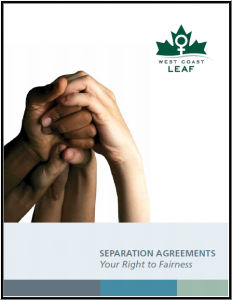Tenant Resource & Advisory Centre (TRAC) launches Tenant Survival Guide as Clicklaw Wikibook
 Courthouse Libraries BC and Tenant Resource & Advisory Centre (TRAC) announced today that the Tenant Survival Guide is now available as a Clicklaw Wikibook. In its new online format at http://wiki.clicklaw.bc.ca, the Tenant Survival Guide is easy to read on screen, fully searchable, and hyperlinked to key forms and resources for tenants. The full PDF press release is posted online.
Courthouse Libraries BC and Tenant Resource & Advisory Centre (TRAC) announced today that the Tenant Survival Guide is now available as a Clicklaw Wikibook. In its new online format at http://wiki.clicklaw.bc.ca, the Tenant Survival Guide is easy to read on screen, fully searchable, and hyperlinked to key forms and resources for tenants. The full PDF press release is posted online.
In addition to providing an excellent online reading experience, the new format of the Tenant Survival Guide also supports flexible printing and reading options for offline use. As a Clicklaw Wikibook, the Guide can also be downloaded and printed as a PDF, or downloaded as an EPUB — a popular ebook standard — and read on an ereader, tablet or mobile device. Coming soon is a print-on-demand option.
The flexible printing and reading options benefit public libraries and readers who find it hard to access or use computers — while the online version better extends the reach of the Tenant Survival Guide to tenants across British Columbia.
As the term “wiki” suggests, Clicklaw Wikibooks uses wiki technology, which enables information to be updated quickly to respond to changes in the law. TRAC will continue to update the Tenant Survival Guide on Clicklaw Wikibooks as laws affecting tenants evolve.
In releasing the Tenant Survival Guide as a Clicklaw Wikibook, TRAC joins People’s Law School and authors like John-Paul Boyd and Cliff Thorstenson in collaborating with Courthouse Libraries BC to provide legal information in an accessible, innovative format for British Columbians. A full list of Clicklaw Wikibook titles is found here.


